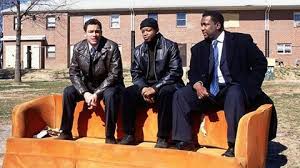Ancient philosophers like Plato and Aristotle typically devoted significant attention to the forms of common life they took to be characteristic of the good city. The question of the city is equally prominent in theological reflection. In the book of Genesis, the formation of the city is located in the context of an account that is characteristically referred to as "the fall" while the book of Revelation presents a vision of the redeemed city. Augustine brings together philosophical and theological resources to tell a tale of two cities – the earthly and heavenly – that are woven together in complex ways, such that we might read the story of any particular city as being at once redeemed and unredeemed. Among other things, this suggests that philosophy and theology somehow have a significant stake in the question of the city. And yet it might be argued that contemporary
discourse on the city is characterized by the relative absence of meaningful
philosophical and theological reflection, while at the same time the
disciplines of theology and philosophy no longer have very much to say about
the city. Against the background of this cluster of claims, this course will explore what sorts of philosophical and theological statements are made and invited by the contemporary city. It will be structured around an engagement with David Simon's critically acclaimed TV drama, The Wire – an extended and multi-layered reflection on the state of the city in the context of late capitalism.

- Teacher: Chris Huebner